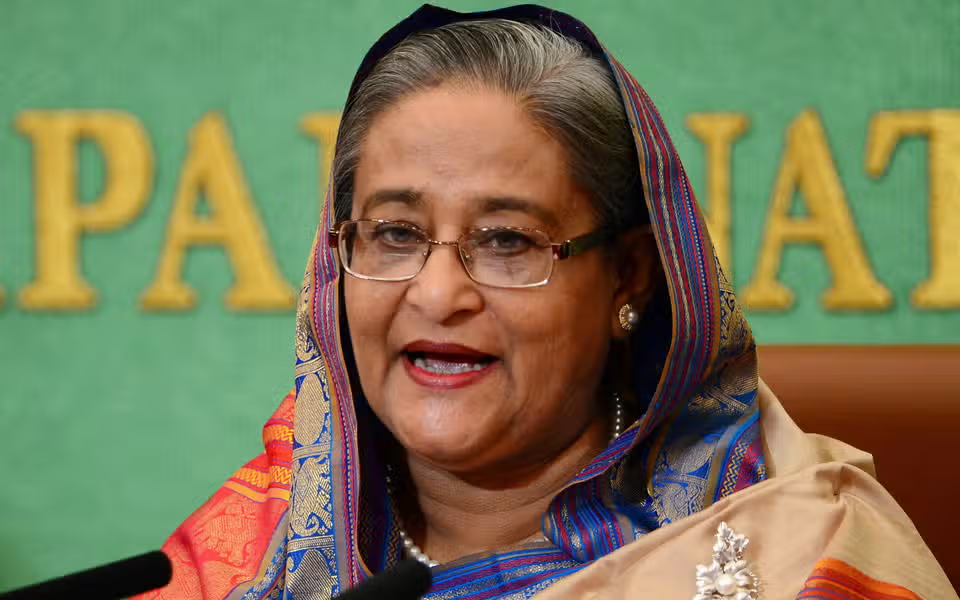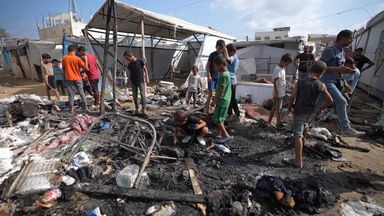North Korea on Sunday hit out at Washington over its "nuclear war plan" after recent U.S. and South Korean moves to reinforce nuclear deterrence in the region.
The U.S. and its allies will bear responsibility for the "catastrophic consequences" of their "provocative acts" in the region, North Korea's Foreign Ministry said in a statement carried by the state-run Korean Central News Agency.
The ministry warned that Pyongyang is "ready to take the most necessary measures" to protect its sovereignty, national security interests, and "regional and global peace and stability."
Tensions on the Korean peninsula are at their highest level in decades amid the North's missile launches, waste balloons, a new military pact with Russia, and the South's resumption of loudspeaker broadcasts and activists' steady stream of balloons carrying anti-Pyongyang propaganda northward across the Demilitarized Zone separating the neighbors.
North and South Korea are technically still in a state of war, having never signed a peace treaty since the end of open hostilities in 1953.
The ministry criticized the recent U.S.-South Korean tabletop exercise "Iron Mace 24," held Tuesday to Thursday in Pyeongtaek, South Korea, as being more than its stated purpose of simulating a hypothetical nuclear attack.
The ministry said Washington and Seoul had set up a "nuclear war plan" aimed at Pyongyang since the two allies set up the Nuclear Consultative Group in April 2023.
The Iron Mace exercise shows this plan is now in the phase of "actual and detailed execution, the ministry said.
According to Seoul and Washington, the Nuclear Consultative Group, which has met three times so far, was formed to "strengthen extended deterrence, discuss nuclear and strategic planning, and manage the North Korean threat to" international nuclear nonproliferation efforts.
North Korea is subject to wide-ranging United Nations Security Council sanctions over its nuclear and ballistic missile programs.
Washington's extended deterrence efforts include measures to protect South Korea, such as the tens of thousands of U.S. troops based there, joint military exercises, and the U.S. "nuclear umbrella"— an assurance the U.S. would use its nuclear arsenal to deter or respond to any nuclear attack against the South.
Through this policy of extended deterrence in support of its South Korean and Japanese allies, the U.S. has brought its "vassal countries" into a nuclear alliance, Pyongyang said.
Through such "provocations," the U.S. "has plunged the worrisome security environment of the Korean peninsula into a more dangerous phase to persistently escalate the danger of a nuclear clash in the region," the ministry said.
The statement pointed to recent remarks made by Vipin Narang, acting U.S. assistant secretary of defense for space policy, who signaled a more assertive U.S. nuclear posture to match the perceived threat from nuclear-armed adversaries, particularly China.
"If our adversaries continue down their current paths, the United States—alongside our allies and partners—is ready, willing, and able to confront the challenges of a new nuclear age," Narang said Thursday at an event hosted by the Center for Strategic and International Studies think tank in Washington, D.C.
Narang warned that the U.S. "can't sleep on North Korea" and the progress it has made on its weapons programs, especially in light of its deepening relationship with Russia.
Newsweek reached out to the U.S. Department of Defense with a written request for a response.
Last week, a bipartisan commission released a report to Congress on the status of national security efforts. Calling the current international security environment the "most challenging and dangerous" since World War II, the 75-page report called on the U.S. to maintain a higher level of defense spending and revamp its manufacturing, cyber, and other defense-related capabilities.
Also last week, South Korean President Yoon Suk-yeol's cabinet greenlit a new "Strategic Command" tasked with preventing or reacting to a potential nuclear or weapons of mass destruction attack by the North.
Disclaimer: The copyright of this article belongs to the original author. Reposting this article is solely for the purpose of information dissemination and does not constitute any investment advice. If there is any infringement, please contact us immediately. We will make corrections or deletions as necessary. Thank you.



